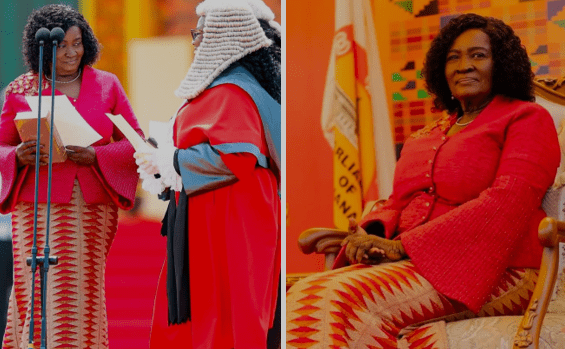By Thomas S. MORGAN
On January 7, 2025, Ghana witnessed a truly historic moment. President John Dramani Mahama was sworn into office alongside Professor Naana Jane Opoku-Agyemang, who made history as the country’s first female Vice President.
This isn’t just another political milestone—it’s a societal shift that underscores Ghana’s growing commitment to gender equality and stronger governance.
Speaking with us in an exclusive interview after the inauguration, Efua A. Dougan, a leading voice in the tech and data industries and an advocate for women’s empowerment, shared her pride in this milestone: “The first female Vice President of Ghana is such a momentous achievement for us Ghanaian women. Considering the fact that we recently signed the Affirmative Action Bill into law, coupled with now having a female Vice President, holds immense significance. It sets the bar high for what women and the girl-child in Ghana can achieve, and I’m very, very proud to have witnessed this moment.”
Professor Opoku-Agyemang’s rise to one of the highest offices in the land follows the enactment of the Affirmative Action Bill, which was signed into law on September 19, 2024.
This important legislation is Ghana’s bold step toward fixing gender imbalances in leadership, politics, and economic participation. For many, it represents a new chapter in the country’s effort to break down long-standing barriers for women and girls.
But while there’s cause for celebration, Ghanaians are looking to this administration to deliver on key promises. During his speech, President Mahama pledged to focus on reviving the economy, fighting corruption, and creating opportunities for the youth and women of Ghana. Citizens are watching closely, hoping this government will build on past programmes like the Free Senior High School policy and expand access to education and jobs.
For many, this government’s success will depend on its ability to choose the right people to guide critical policies and decisions. As Dougan put it, “The President would need to surround himself with good advisors and select competent ministers and appointees if he’s going to deliver on his plans for Ghana.”
Ghana’s democratic journey continues to inspire. This inauguration isn’t just about politics—it’s a message to future generations that leadership is about potential, not gender. With the Affirmative Action Bill now law, Ghana is laying the foundation for a more inclusive society where women and girls can truly thrive.
As the world watches Ghana’s progress, this moment sets a high bar for leadership, accountability, and equity. It’s a chance for Ghana to become a global example of how inclusivity and governance can go hand in hand.










